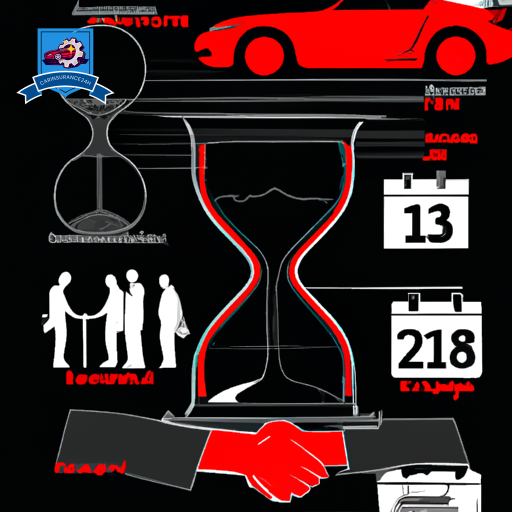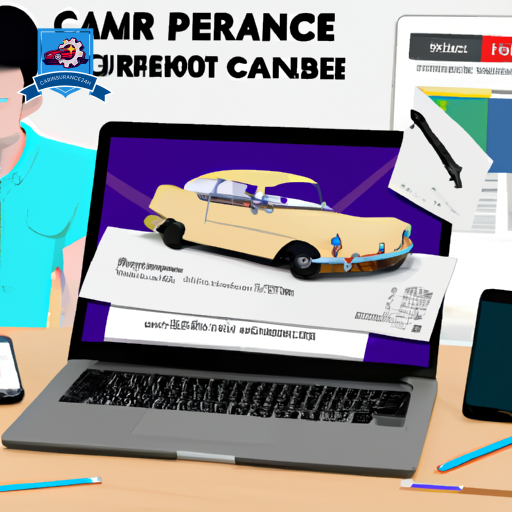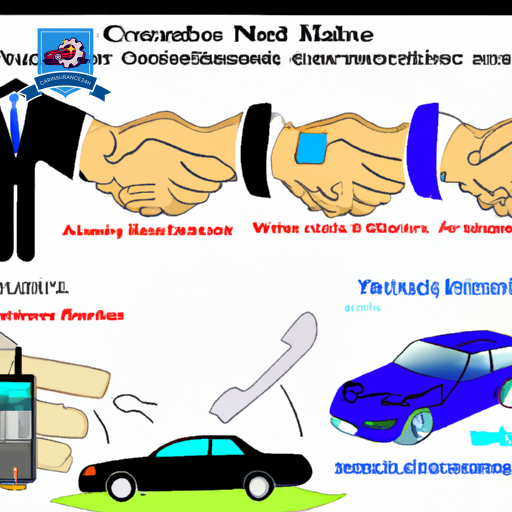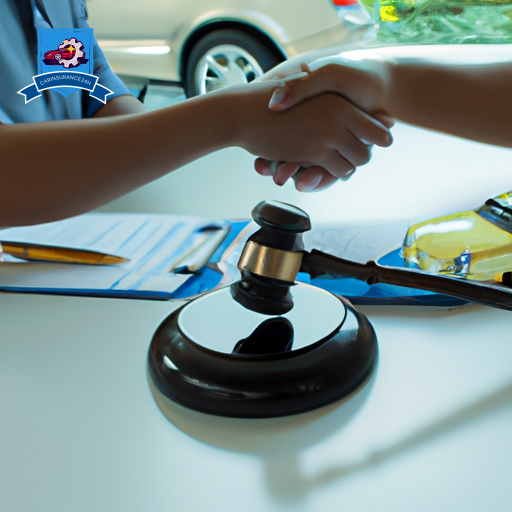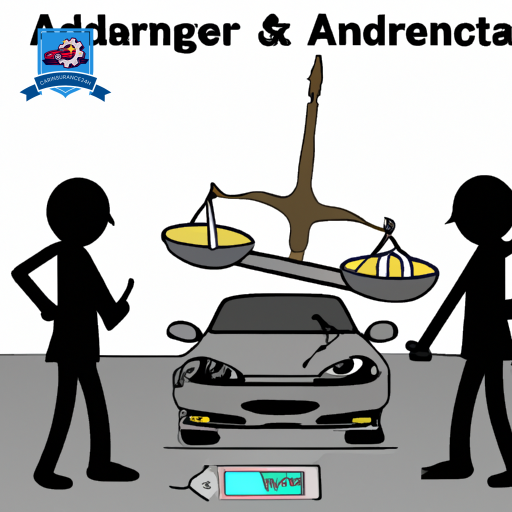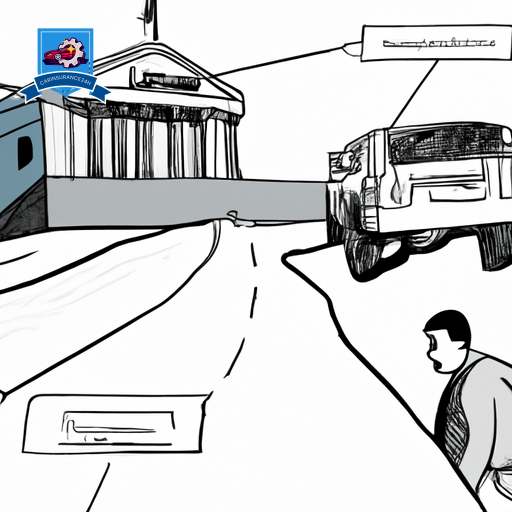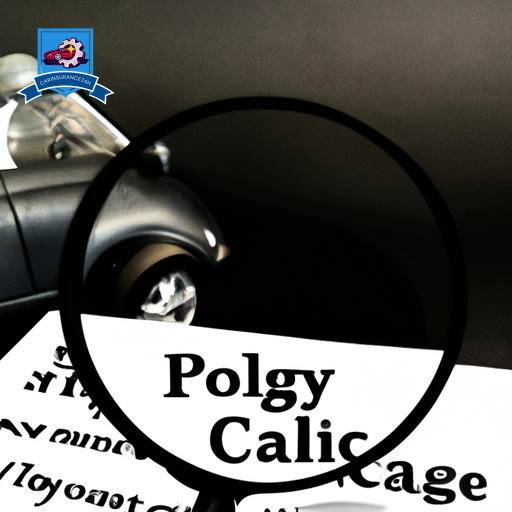The duration required to settle a car insurance claim can greatly vary, depending on numerous factors including the complexity of the accident, the thoroughness of the investigation, and the efficiency of communication between all parties involved.
From the initial steps post-accident, through the submission of your claim, to the final stages of settlement negotiation and post-settlement considerations, each phase plays a pivotal role in determining the timeline of resolution.
Understanding these elements in detail not only demystifies the process but also equips policyholders with the knowledge to navigate their claims more effectively.
Let’s explore the intricacies that influence the timeline of a car insurance claim settlement, highlighting key considerations that could expedite or delay the process.
Understanding the Claims Process

To effectively navigate the claims process, one must first comprehend its structured sequence of steps, beginning with the initial reporting of the incident to the insurance company. This initial step sets the foundation for a series of actions that both the claimant and the insurance provider will undertake to reach a resolution. Following the report, the insurance company typically reviews the claimant’s policy to make certain that the incident is covered under the terms of the policy. This review process is critical, as it determines the applicability of the policy to the incident in question.
Claims automation plays a pivotal role in streamlining this process. By leveraging technology, insurance companies can swiftly analyze the details of the claim against the policy particulars. This not only accelerates the initial review but also enhances the accuracy of the evaluation, reducing the likelihood of errors that could delay the process. Moreover, claims automation facilitates timely updates to the claimant, keeping them informed about the progress of their claim and any actions required on their part.
Policy updates are another essential component in the claims process. Insurance companies periodically update their policies to reflect changes in regulations, market conditions, and customer needs. Claimants should be proactive in understanding these updates, as they can impact the coverage and, consequently, the outcome of the claim. Informed claimants are better prepared to navigate the intricacies of the claims process, leading to a more efficient resolution.
Factors Influencing Claim Duration

Several factors greatly influence the duration of a car insurance claim process:
The complexity of the incident often dictates the amount of investigation required, with more intricate cases involving multiple vehicles or parties taking longer to resolve. Insurance adjusters must thoroughly assess the damage, determine fault, and negotiate settlements, a process that can be time-consuming if the incident details are complex.
Policy specifics also play a critical role in the claim duration. The coverage limits set within a policy can affect how negotiations proceed. For instance, claims that approach or exceed policy limits may require additional scrutiny and approval from higher levels of the insurance company’s hierarchy, thereby extending the settlement timeline. Additionally, the type of coverage—whether it’s extensive, collision, or liability—can influence the steps needed to process the claim, each with its own set of procedures and timeframes.
Claimant responsiveness is another important factor. The speed at which a claimant responds to requests for information, submits necessary documentation, and communicates with the insurance company can significantly impact the duration of the claim process. Delays in communication or submission of documents can stall progress, leading to extended settlement times.
External factors, such as weather conditions, can also affect the claim duration. Severe weather events can cause a surge in claims, overwhelming insurers and leading to delays in processing individual claims. These conditions can hinder the ability of adjusters to assess damage in a timely manner, further contributing to prolonged settlement periods.
Immediate Steps After an Accident

Following a car accident, it is imperative for individuals involved to prioritize their safety by moving to a secure location if possible. This initial step not only guarantees personal well-being but also aids in accident prevention by reducing further risk of injury or additional collisions. Once safety is secured, the next critical action involves evaluating the situation to determine if emergency response services are needed. Quick evaluation and decision-making can have a major impact on the health outcomes of those involved.
Engaging in emergency response measures, such as calling for medical assistance or notifying law enforcement, is vital. This not only provides immediate aid to any injured parties but also establishes a formal record of the incident, which is essential for the subsequent insurance claim process. Individuals should remain at the scene until authorities arrive, unless medical emergencies necessitate leaving.
Documenting the accident scene comprehensively is another crucial step following an accident. This involves taking photographs of the vehicles, noting down the time and location, and collecting the contact information of any witnesses. Such detailed documentation serves as valuable evidence for both accident prevention strategies and insurance claim purposes.
Additionally, it is important for individuals to exchange insurance information with the other parties involved. This facilitates the forthcoming claims process but should be handled without admitting fault or liability, since determinations are typically made after thorough investigations by insurance companies and law enforcement.
Submitting Your Claim
Upon completing the immediate steps after an accident, the next critical phase involves submitting your insurance claim. This process requires the collection and submission of necessary documentation to support your case.
Understanding the claim filing process is crucial to make sure a smooth and efficient resolution.
Necessary Documentation
To successfully initiate your car insurance claim, it is imperative to gather and submit all necessary documentation. Ensuring document authenticity plays a critical role in the preliminary stages, as insurance companies meticulously examine the validity of provided information. This step is fundamental in affirming the legitimacy of the claim.
Policy verification stands as another essential component, requiring claimants to present accurate policy details. This includes the policy number, coverage limits, and the period of coverage. Such information aids insurers in establishing the scope of the policy’s applicability to the claim in question.
Accurate and thorough documentation not only accelerates the claim process but also minimizes the likelihood of disputes, thereby facilitating a smoother resolution.
Claim Filing Process
After gathering and submitting necessary documentation, the next step involves filing your car insurance claim, a process that demands attention to detail and adherence to specific procedures set by your insurance provider. This critical phase guarantees that all your efforts in compiling evidence and records translate into a successful claim resolution.
- Online portals offer a streamlined, digital pathway for claim submissions, simplifying the process through user-friendly interfaces.
- The careful review of your policy renewal documents assists in understanding coverages that might impact your claim.
- Direct communication with your insurance agent can provide personalized guidance and clarify any uncertainties during the filing process.
Guiding the claim filing process effectively sets the groundwork for a smooth journey towards claim settlement, highlighting the importance of each carefully executed step.
The Investigation Phase

The investigation phase of a car insurance claim process involves a thorough review of the accident details by the insurance company to determine liability and coverage. During this critical stage, insurance adjusters gather and analyze evidence, including police reports, witness statements, and any available video footage. This evidence helps to construct an accurate account of the incident, essential for making fair and informed decisions regarding the claim.
A key component of the investigation phase is fraud detection. Insurance companies employ specialized teams to identify any discrepancies or anomalies in the claim details that might suggest fraudulent activity. This scrutiny is crucial for maintaining the integrity of the insurance system and making sure that policyholders’ premiums are used responsibly. Fraudulent claims can lead to increased premiums for all policyholders, making fraud detection an important endeavor.
Moreover, the investigation phase often prompts policy updates. As adjusters review the circumstances of the accident and the details of the involved parties’ coverage, they may identify areas where the policy could be clarified or adjusted. These updates aim to prevent future disputes and make certain that the policy terms are up-to-date with current laws and regulations.
Insurance companies are tasked with completing the investigation phase promptly to avoid unnecessary delays in the claim process. Although the duration can vary based on the complexity of the accident and the availability of evidence, insurers aim to resolve investigations efficiently. Once the investigation concludes, the claim moves to the next phase, where the focus shifts to settlement negotiation, aiming to reach a fair compensation agreement for the covered losses.
Settlement Negotiation

Following the investigation phase, the settlement negotiation process begins, marking a critical juncture in resolving a car insurance claim.
This phase encompasses the evaluation of the initial offer, the formulation of a counteroffer strategy, and the execution of final agreement steps.
Each of these points plays a pivotal role in ensuring that the settlement is both fair and expedient for all parties involved.
Initial Offer Evaluation
Understanding the initial offer from your insurance company is a critical step in the settlement negotiation process, as it sets the stage for potential adjustments based on the extent of damages and injuries sustained. At this juncture, policyholders should meticulously evaluate the offer against a backdrop of market comparison and the implications for policy renewal. This evaluation not only guarantees a fair valuation but also influences future insurance interactions.
-
Market Comparison: Aligning the offer with current market valuations for similar cases.
-
Policy Renewal: Evaluating how the settlement could affect your policy’s terms and premium.
-
Extent of Damages and Injuries: Thoroughly reviewing the compensation in relation to the actual damages and injuries.
Counteroffer Strategy
After receiving the initial offer from your insurance company, devising a well-informed counteroffer strategy becomes essential in the settlement negotiation process. Individuals equipped with negotiation training often employ psychological tactics to enhance their position.
This strategy involves presenting a counteroffer that is not only substantiated by detailed documentation of damages and expenses but also reflects an understanding of the insurance policy’s nuances. The use of psychological tactics, such as highlighting the emotional distress and inconvenience caused by the accident, can play a pivotal role. It aims to create empathy within the adjuster, potentially leading to a more favorable settlement.
This approach requires a structured and detail-oriented mindset, focusing on leveraging every piece of evidence to build a compelling case for a higher settlement offer.
Final Agreement Steps
Reaching the final agreement in settlement negotiations marks a critical juncture where both parties convene to finalize the terms of compensation. This stage is pivotal, as it not only addresses the immediate financial restitution but also outlines the legal implications tied to the settlement. The process involves meticulous scrutiny to make sure that the agreement aligns with the policy’s parameters and anticipates any potential impact on policy renewal.
- Scrutinizing the settlement offer to ascertain its adequacy in covering all damages and losses.
- Evaluating the legal implications of the settlement to prevent future disputes or liabilities.
- Considering the effects on policy renewal, including potential changes in premiums or terms, to make sure continuous protection.
These steps are important for both parties to reach a mutual understanding and close the claim with clarity and fairness.
Post-Settlement Considerations

Securing a settlement in a car insurance claim often marks the commencement of a critical phase where individuals must meticulously manage the resulting financial and legal obligations. Once the settlement amount has been agreed upon and disbursed, the claimant must consider various post-settlement considerations that could impact their financial health and insurance status. Among these considerations, understanding the tax implications of the settlement and the effects on policy renewal stand paramount.
Tax implications of a car insurance settlement can vary markedly based on the nature of the compensation received. Generally, compensation for physical damages to the vehicle or property is not taxable. However, if part of the settlement includes compensation for lost wages or emotional distress, these elements could be subject to tax. It is advisable for claimants to consult a tax professional to navigate these complexities and make sure compliance with tax laws.
Policy renewal after a claim settlement is another critical consideration. Insurance providers may reassess the policyholder’s risk profile following a claim, which could influence the terms and premium of the renewed policy. Some insurers might increase premiums or impose certain restrictions based on the nature and frequency of claims. Policyholders should engage in discussions with their insurance providers to understand the potential impact on their policy and explore options to mitigate any adverse effects, such as enrolling in defensive driving courses or opting for a higher deductible.
Frequently Asked Questions
How Do External Events, Like Natural Disasters, Impact the Average Time It Takes for Insurance Companies to Settle Claims?
External events, particularly natural disasters influenced by shifting climate patterns, greatly extend the duration for settling insurance claims. These occurrences often lead to a surge in claims, thereby impacting insurance premiums and operational timelines for insurers.
Can Changing My Insurance Provider During an Ongoing Claim Process Affect the Settlement Time or Outcome?
Changing your insurance provider during an ongoing claim can complicate policy transfer procedures, potentially prolonging settlement times. Additionally, such actions might negatively affect customer loyalty impact, influencing future interactions and benefits with the new insurance company.
How Does the Presence of Legal Representation, Either by the Claimant or the Insurance Company, Alter the Timeline for Settling a Claim?
The presence of legal representation can greatly impact the claim settlement timeline. Lawyers’ expertise in claimant preparation and negotiation strategies often accelerates the process, although complex cases may see extended negotiation periods before reaching a resolution.
Are There Specific Times of the Year When Settling a Car Insurance Claim Might Take Longer Due to Higher Volumes of Claims?
Settling car insurance claims may experience delays during specific times, especially the holiday rush, due to a higher volume of incidents leading to a claim backlog. This period typically sees an increased workload for insurers.
How Do Differences in State or Country Regulations Affect the Typical Duration for Settling a Car Insurance Claim?
Differences in state or country regulations greatly influence the duration required to settle a car insurance claim. Variations in policy details and claim complexity necessitate a thorough review, thereby affecting the settlement timeline.

